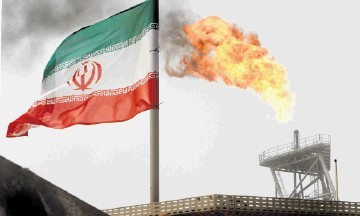
The Trump administration has announced the reimposition of all US sanctions on Iran that had been lifted under the 2015 nuclear deal.
The sanctions, covering Iran’s shipping, financial and energy sectors, are the second batch of penalties reimposed since President Donald Trump withdrew from the deal in May.
The sanctions that will come into force on Monday penalise countries that do not stop importing Iranian oil and foreign companies that do business with blacklisted Iranian entities, including the central bank, a number of private financial institutions and state-run port and shipping companies.
Eight countries, identified by officials as US allies such as Italy, India, Japan and South Korea, will receive temporary waivers allowing them to continue to import Iranian petroleum products for a limited period.
US secretary of state Mike Pompeo and treasury secretary Steven Mnuchin made the announcement on Friday.
They say sanctions will remain until Tehran meets demands that include ending support for terrorism, ending military engagement in Syria and completely halting its nuclear and ballistic missile development.
Mr Pompeo said the sanctions are “aimed at fundamentally altering the behaviour of the Islamic Republic of Iran”.
“Maximum pressure means maximum pressure,” he said.
Mr Mnuchin said 700 more Iranian companies and people will be added to the sanctions lists under the reimposed sanctions.
Hardliners in the US Congress and elsewhere will probably be disappointed in the sanctions because they were pushing for no oil import waivers as well as the complete disconnection of Iran from the main international financial messaging network known as Swift.
Mr Mnuchin defended the move to allow some Iranian banks to remain connected to Swift, saying the Belgium-based firm had been warned it will face penalties if sanctioned institutions are permitted to use it.
Mr Pompeo and Mr Mnuchin said the sanctions will have exceptions for humanitarian purchases.